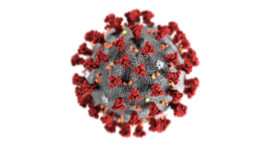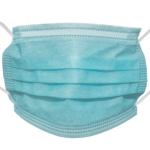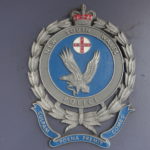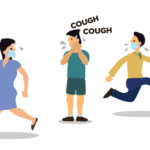Public Health Orders in New South Wales

Just when you thought COVID-19 restrictions were easing and you could go and have some fun socialising with your mates, Police in New South Wales have announced they’ll be out in force at pubs and clubs across the state to ensure that orders are being followed.
Easing of restrictions
Again, there’s a distinct lack of details and clarity about exactly what’s enforceable, and it’s up to each state and territory to put their own restrictions into place, but according to the New South Wales Government website, you are allowed to: travel to regional NSW for a holiday and you can have up to ten family members in the same premises. You can visit museums, galleries and libraries. Pubs, clubs, cafes and restaurants can have up to 50 customers, and beauty and nail salon operators can begin treatments.
Up to 20 people can attend weddings, 50 at funerals and 50 at places of worship. In another week or so gyms will reopen, as will dance studios and children’s weekend sport competitions will return on July 1.
But there’s still an expectation that we will remain 1.5 metres apart when we’re out and about, practice good hand hygiene and stay home if we’re sick.
Some cafes, clubs and shops will have their own regulations with regard to how many people are allowed on the premises, because they are bound by the one-person-per four square metres rule, and will have their own policies in place to protect staff.
Public Health Order in place until June 30
But it’s worth a timely reminder that the fines for non-compliance are hefty in New South Wales, $1000 for individuals and $5,000 for businesses.
Over the Easter long weekend, police were issuing more than 100 fines per day on average. In recent weeks, that number has fallen to an average of about 5 per day.
Also of concern is a recent police statement which said police are “continuing to use discretion in these matters and can seek further advice through chain of command, if required,” which is exactly the type of policing which saw people given fines or court appearance orders by police during the period of total lockdown with no real consistency.
Further analysis of fines also shows that a significant number of teenagers have been fined, some multiple times. People have been fined after being given multiple warnings, others have received no warnings at all.
The statistics also show that there is little correlation between where fines have been issued and where cases of COVID-19 have been confirmed. About a dozen people in the central western town of Cobar have been fined, despite no COVID-19 cases confirmed in the area and there are concerns that lower socioeconomic areas and regional towns bore the brunt of police muscle over the lockdowns.
As such, while powers were given to police to prevent the spread of disease, there are concerns that police have used them to control, prevent, or add additional punishment to other criminal behaviour.
The public health order, which took effect on March 17 does not expire until the end of this month and in the meantime, police do continue to have special powers to enforce these.
The law on Public Health Orders in NSW
The Public Health Act 2010 (NSW) (‘the Act’) empowers state officials to make a range of enforceable directions and orders with a view to dealing with public health risks.
The power to deal with these risks is contained in section 7 of the Act, which provides that where the health minister considers on reasonable grounds that a situation has arisen that is, or is likely to be, a risk to public health, the minister may take such action or give such directions that are necessary to deal with the risk and its possible consequences.
The section makes clear that actions and orders can be made in order to:
- Reduce or remove any risk
- Segregate or isolate inhabitants
- Prevent, or conditionally permit, access to areas
The section says that such an order must be published in the Gazette as soon as practicable after it is made, but that failure to do so does not invalidate the order.
Similar legislation applies in other parts of the nation.
Penalties
Section 10 of the Act provides that a person who, without reasonable excuse, fails to comply with such a direction faces a maximum penalty of 6 months in prison and/or a fine of 100 penalty units, which is currently $11,000.
Any continued failure to comply is punishable by a fine of 50 penalty units, or $5,500, for each day the offence continues.
The maximum penalty for companies is 500 penalty units, or $55,000, and 250 penalty units, or $27,500 for each day the offence continues.
Orders against persons suspected of being infected
Section 62 of the Act empowers ‘authorised medical practitioners’ – who are defined by section 60 as the chief health officer and registered medical practitioners authorised by the chief health officer’s secretary – to make public health orders against individuals in certain circumstances.
The section provides that such an order can be made if the practitioner is satisfied, on reasonable grounds, that the person:
- Has a Category 4 or 5 condition and because of the way the person behaves may, as a consequence of that condition, be a risk to public health (coronavirus is a category 4 condition), or
- Has been exposed to a contact order condition, is at risk of developing the contact order condition, and may be a risk to public health because of the way the person behaves.
The section requires such an order to be in writing, name the person subject to the order, state the grounds on which it is made, state that, unless sooner revoked, it expires at the end of the specified period or, if no period is specified, in 28 days.
Such an order may require a person – known as the ‘public health detainee’ to do any of the following things:
- Refrain from specified conduct
- Undergo specified treatment
- Undergo counselling
- Submit to the supervision
- Notify the Secretary of other persons with whom the person has been in contact within a specified period
- Notify the Secretary if the person displays any specified signs or symptoms
Section 70 of the Act prescribes a maximum penalty of 6 months in prison and/or 100 penalty units, or $11,000, for any person who fails to comply.
Section 71 of the Act provides that a person who contravenes a public health order can be placed under arrest to ensure compliance.
Powers to ensure compliance with the Act
The Act contains a number of powers to enable authorised officers of the NSW Health Service to ensure compliance.
These include section 108 which empowers them to enter premises and seize, inspect or copy documents in the premises, section 110 which can force suspected persons to answer relevant questions and 112 which requires persons to give their name and address.
Information and updates about the coronavirus are provided by NSW Health and the Federal Department of Health.








